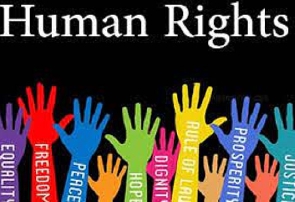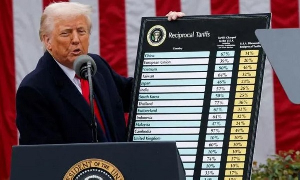In 2022, the Human Rights and Law Index ranked countries globally according to human rights violations. African countries claimed four spots out of the top 10. Human rights are fundamental liberties and entitlements to which every individual is entitled. But Africa does not buy this sentiment.
Luckily, the African Union (AU) has taken measures to change the narrative. The most notable move is arguably the establishment of the African Charter on Human and Peoples’ Rights (ACHPR). However, while the charter has made significant progress in promoting freedom, it has also faced some challenges, which, in turn, has reversed gains. Restructuring the charter is one of the few ways to speed up the snail-paced progress of preserving human rights on the continent.
The AU adopted the ACHPR in 1981. It is an international treaty that protects and sets out the fundamental freedoms of every African. These freedoms include diverse civil and economic rights.
Many governments continue to violate the rights of their citizens with impunity. Freedom of speech and expression, assembly, and association are often curtailed, with journalists and human rights defenders facing persecution and harassment. Discrimination against women and children, marginalised groups, and minorities remain widespread.
Citizens of African countries that have ratified the charter can apply its provisions in the African Court on Human and Peoples’ Rights. Sadly, many people are not aware of their rights or that there is an instrument that protects them legally. Ignorance makes it difficult to demand accountability from governments.
To overturn this trend, education ministries in African countries should integrate human rights into school curriculums. While that is taking place formally, civil society organisations (CSO) must advocate for orientation programmes accessible to the public, including marginalized and vulnerable groups. Examples of such groups are persons with disabilities or minoritised demographics.
These steps will ensure that human rights envelop formal and informal education. Governmental bodies rarely speak about the charter, as such, it becomes easy to sweep it under the rug, preventing people from using the treaty entirely.
Public and private media-centred organisations should also conduct orientation exercises to motivate CSOs to advocate for the charter’s implementation. The increased advocacy will go a long way in amplifying the treaty. This recommendation is vital because CSOs often centre their advocacy programmes in vulnerable demographics — places with high human rights violations.
The advocacy programmes can be through radio and television jingles, pamphlets, and flyers distributed during awareness campaigns and social media activities. Examples of institutions capable of carrying out these exercises include the National Orientation Agency in Nigeria and InformAction in Kenya.
Another issue affecting the charter is funding. The funding of the charter from AU members may impede the charter from acting wholly independently. The reason is not far-fetched: he who pays the piper calls the tune. The treaty upholds justice and equity, therefore, influences on the outcome of verdicts should not be fanned. As such, international organisations notable for transparency should increase funding to the charter and its functions. An example of such an organisation is the United Nations Development Programme. Distribution of the financing from foreign and member bodies will enable the charter to act more independently and fairly.
The world is evolving to accommodate new values and perceptions. Laws and treaties have been modified to treat situations fairly and justly. If the charter is 43 years old, recent times will make some parts of the treaty appear unfair.
Human rights may sound like a worn-out phrase waiting to be thrown around, but it's more than just activism. It is the essence of human dignity and freedom, without which Africa's progress and prosperity will remain elusive. Upholding and defending them is a moral obligation and a necessity for a sustainable and just society.
Opinions of Friday, 26 May 2023
Columnist: Claire Mom















